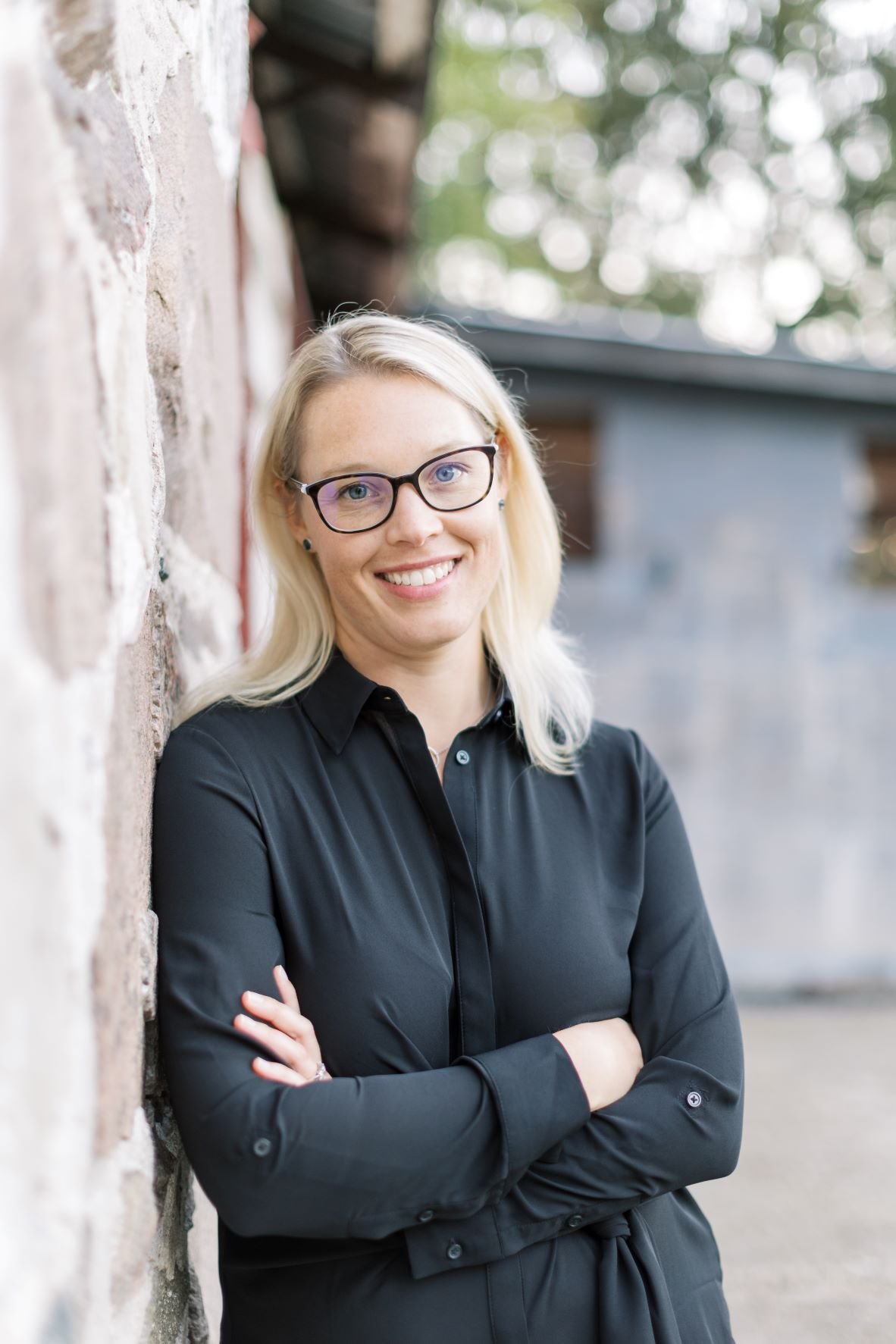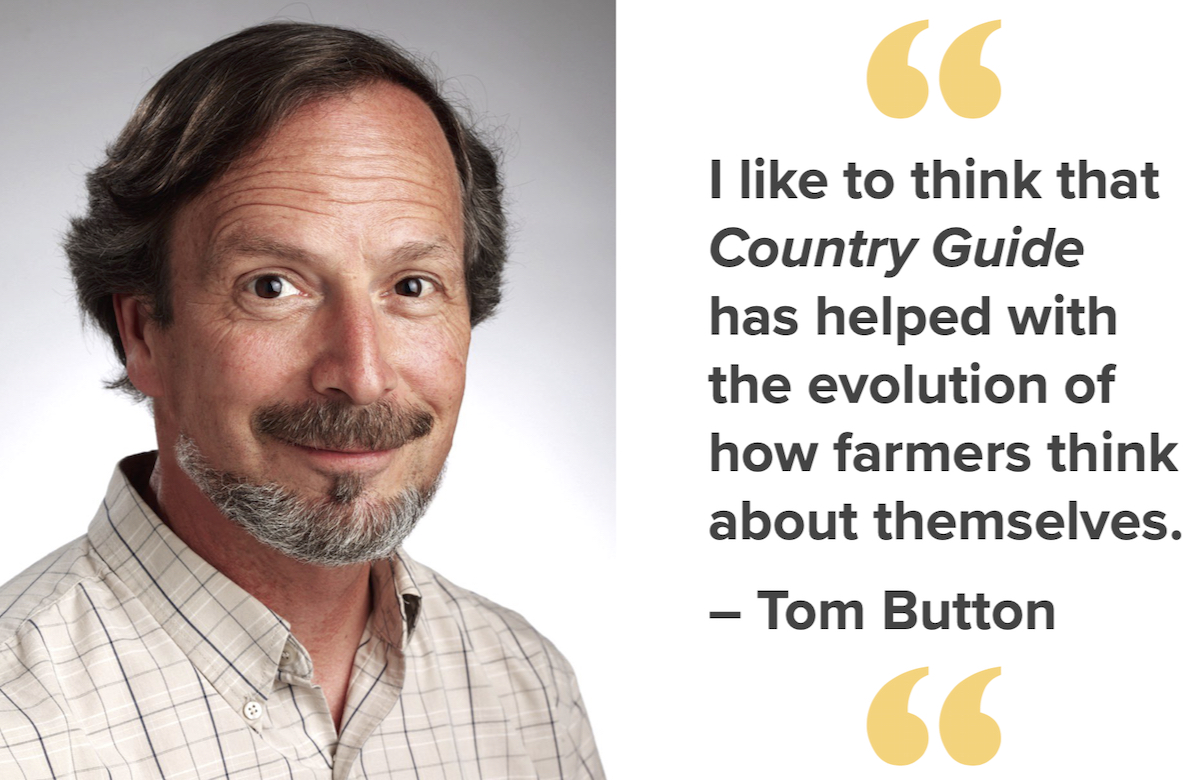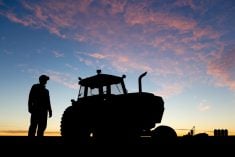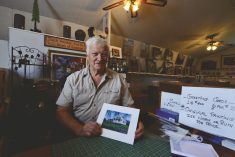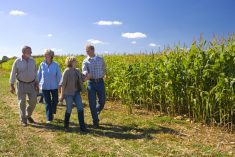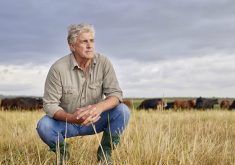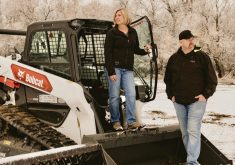For those who missed our December issue where Button thanked his readers for their almost two decades of support, you’ll have missed the announcement that Country Guide’s long-time editor is headed for retirement.
What started as an opportunity to have fun producing a business publication for Canadian farmers soon transformed into the humble pursuit of respecting readers by publishing quality, thought-provoking stories. He converted Country Guide from a production-based publication to a broader, business-focused magazine that appeals to farms of any size, age and type.
“I like to think that Country Guide has helped with the evolution of how farmers think about themselves,” says Button. “It’s been my job to recognize and treat Canadian farmers as the sophisticated individuals that they are by talking to and about our audience on a higher level. I hope I’ve made a difference.”
Read Also

How scientists are using DNA and climate data to breed crops of the future
A method for forecasting how crops will perform in different environments so that plant breeders can quickly select the best parents for new, climate-resilient varieties.
Button has been instrumental in delivering first-hand accounts of what’s been happening on farms for nearly two decades. So of course, we had to sit down with him to talk about what the evolution of Canada’s agriculture industry looked like from his front-row editor’s chair.
What would you have done differently?
One of his favourite questions to ask farmers was “what didn’t work,” so it’s only fair to ask Button the same question as he reflects on his time at Country Guide.
“I wanted to talk about failure more than I did,” says Button, explaining that as humans, we learn the most from our mistakes, and his intention has always been to share rather than ridicule lessons learned with readers. He says he wished he would have pushed the boundaries more with the concept of learning from mistakes. “The challenge is, we’re not good at saying we’ve made mistakes out loud in agriculture.”
Also on Button’s list of “would haves,” exploring the questions “is there such a thing as a Canadian farmer?” and “what defines a Canadian farmer?” These topics were covered from time to time in Country Guide, because he felt that readers should think more about defining the Canadian farmer.
Button asks, “Wouldn’t it be amazing if Canadian farmers could articulate why they are happy to farm in Canada?” He believes the answers could help the industry build a better relationship with consumers. He also thinks this is an important topic of conversation because there is so much that can be gained from peer-to-peer learning among farmers, like strategic, solutions-based decision-making.
He also believes he could have done a better job of mining the perspectives of young people and the value they are bringing back to farms after post-secondary education. According to Button, there is a general attitude in the industry that “older knows better” and he wanted to meaningfully share more outlooks from the younger generation entering into agriculture.
“There’s a whole wealth of new options for today’s farms when you realize what young people are bringing, including new ways of thinking, making decisions and their connections with consumers,” says Button.
What timeless topics keep reoccurring?
Button says there are three topics that he believes are important but has asked himself if they’ve been covered enough or too much over the years: farm transition, the importance of peer groups and how to improve farm family meetings.
“I think overall farmers can up their game on these topics, that’s why we keep talking about them,” he says, predicting readers haven’t seen the last of these stories that address the things people think about when they’re in the tractor.
One of Button’s favourite features, Hanson Acres, was an ongoing Country Guide story about a Saskatchewan farm family dealing with real issues. “The concept is still too good to lose,” he says, noting the relatability of the series for farmers across the country.
Was there a story that affected you?
“We have covered so many stories where farmers have brought such great thinking, insights, innovation and commitment that I could never say one was more memorable than any of the thousands of farmers we talked to,” says Button. But two topics did leave him with a lasting impression over the years. The first is the role of women in agriculture, the second is the professionalism of farmers.
“When I started as editor our industry was still paying lip service to the role of women on the farm,” reflects Button. “The progress on this issue has been stunning. We are seeing all kinds of breakthroughs in this space and it’s amazing to see.”
Button also believes there was a time early in his role at Country Guide when farm advisors felt they knew more than their farming clients. “Agriculture is and always has been about smart people making smart decisions, and farmers are generally the smartest people,” he says.
Over the years, the industry has recognized what Button knew all along: just how sophisticated Canadian farmers are. He says there’s been a shift in the respect and professionalism of farmers that’s been impressive to see. And his role in sharing stories in Country Guide about how farmers are running their businesses and making decisions has contributed to this evolution of acknowledgement.
What will the future bring?
“Part of my job is to say things that might make people think a bit,” says Button. “And one of those things is that psychological science will be the next big thing that will help farmers advance.”
He explains that psychological science isn’t just about getting help, it’s about understanding the value of psychology and how it can serve farmers when they invest in themselves. Personal growth and development, including learning how the mind can help farmers improve their success by increasing leadership and relationship skills, such as empathy, caring, communicating and charisma, are topics he predicts will drive success.
Button feels that he knows less about the future of agriculture now than he has at any point in his career. That’s because there are increasingly so many factors that make it hard to predict the future of the industry.
One of the more obvious trends that he, and likely the entire agricultural industry, is watching is the transition of farmland to non-farming family members. “I’m less confident knowing where farmland will end up in the future because it’s hard not to ask how farm and land ownership will play out,” says Button. “These people want to keep the farm in the family and be farmers by holding the land, but when you aren’t actively farming, you’re not plugged into the local community and the industry as a whole and that worries me.”
On a more optimistic note, Button points out that there are so many farmers in Canada with great insights, capabilities and resources who will make decisions that we can’t even understand today. “Canadian farms are in good hands and will continue delivering on the industry’s potential,” he says.
What’s next?
At the end of Button’s editor’s notes in each issue, he asked “Are we getting it right?” This was his way of opening the door for feedback from readers and an opportunity to learn what was relevant to his audience. He says he was often surprised by what stories interested people and he always welcomed a conversation.
“When I started at Country Guide, I would tell people farming isn’t about science or technology, it’s about individual farmers making one decision at a time, and that’s what fundamentally drives agriculture,” says Button. “I hope I’ve been able to communicate this outlook and help farmers make decisions that drive success.”
In addition to the significant role readers have played in Country Guide content, Button also acknowledges the important role agricultural journalism plays in the industry and says he’s grateful to have worked with a team of focused and dedicated writers who have made an impact through their contributions to Country Guide.
Much like the farm families he’s covered in the stories he’s published, Button’s retirement means he has transitioned his role to the next generation of editors, April Stewart and Lisa Guenther. He says, “There’s a kind of justice in thinking that most of what I was able to do with Country Guide I did leave on the page.”
Thank you for your dedication and contributions, Tom.

